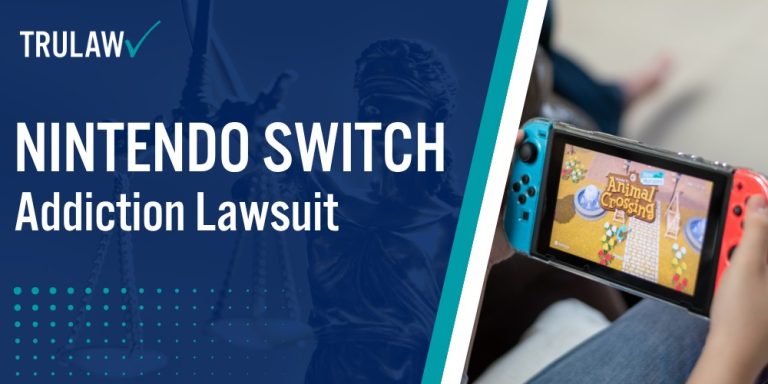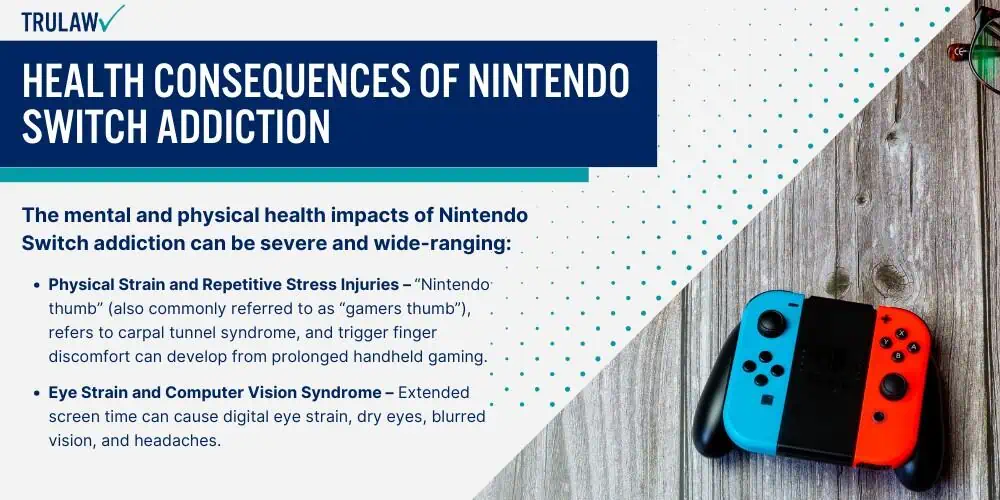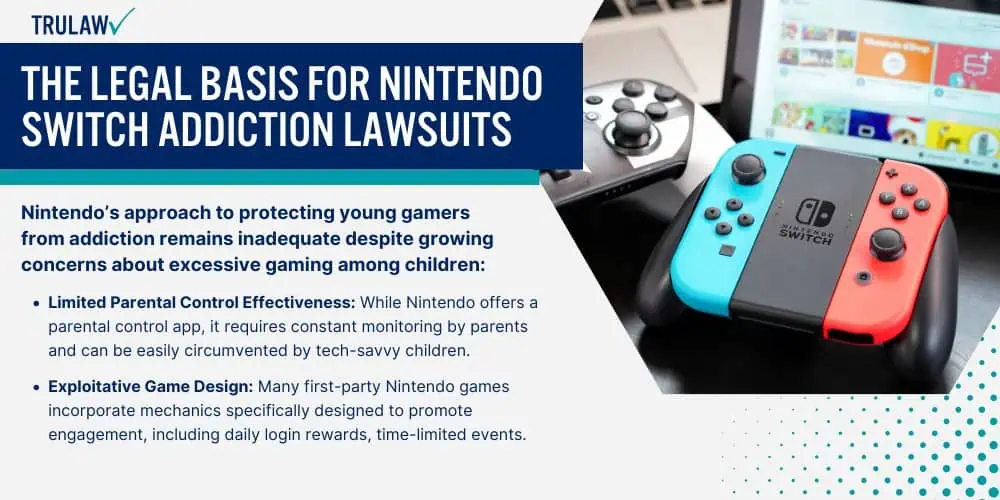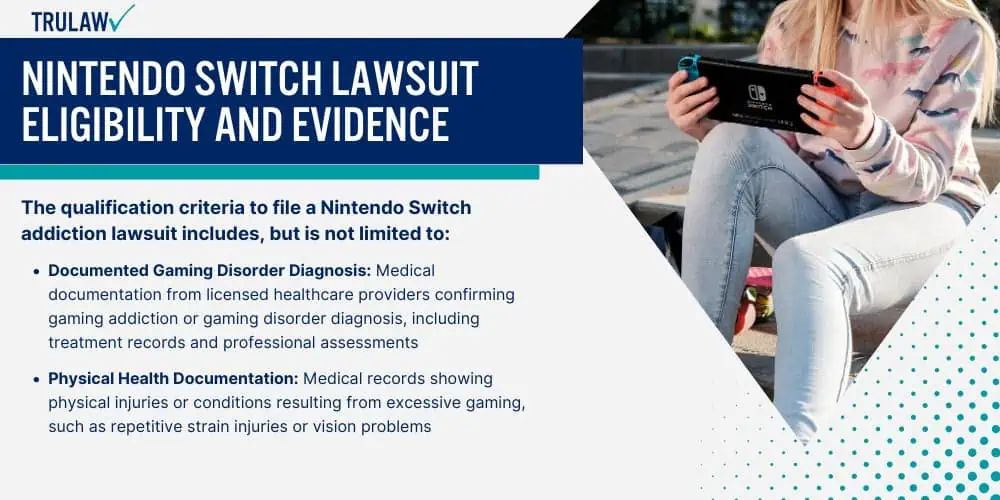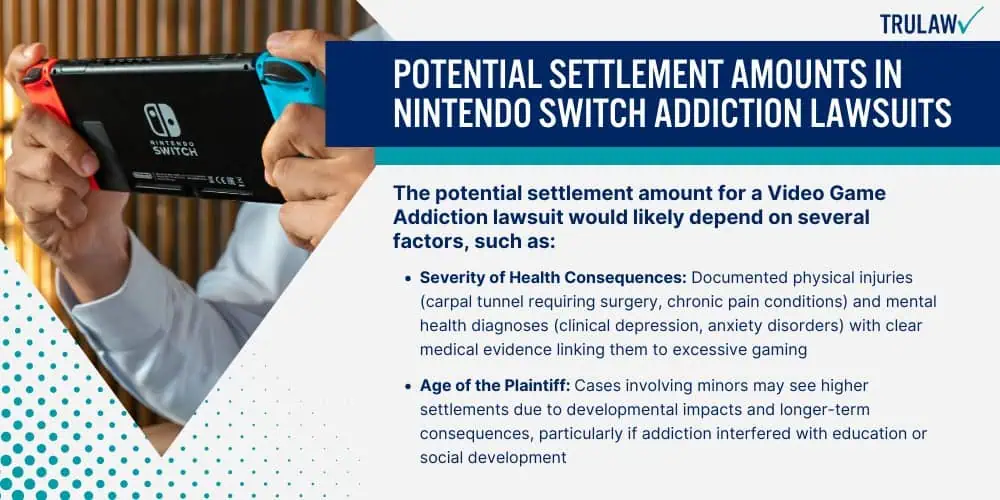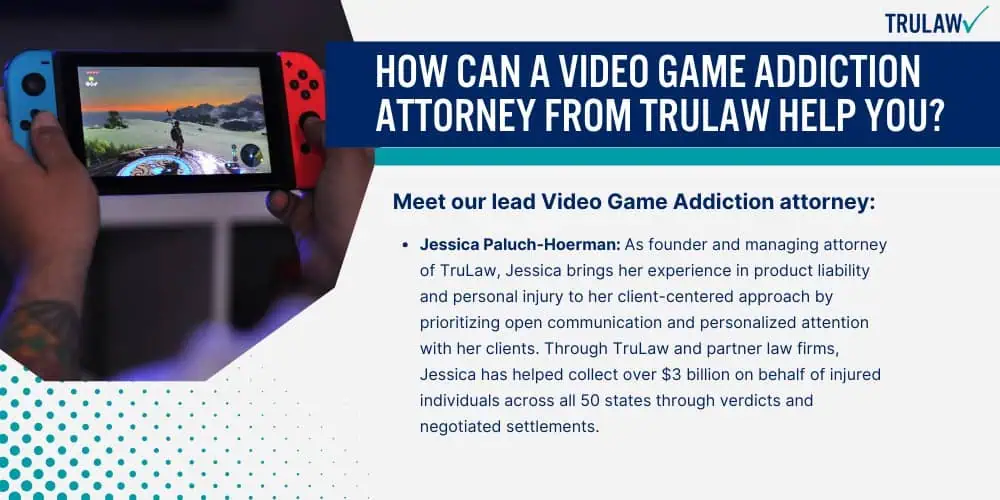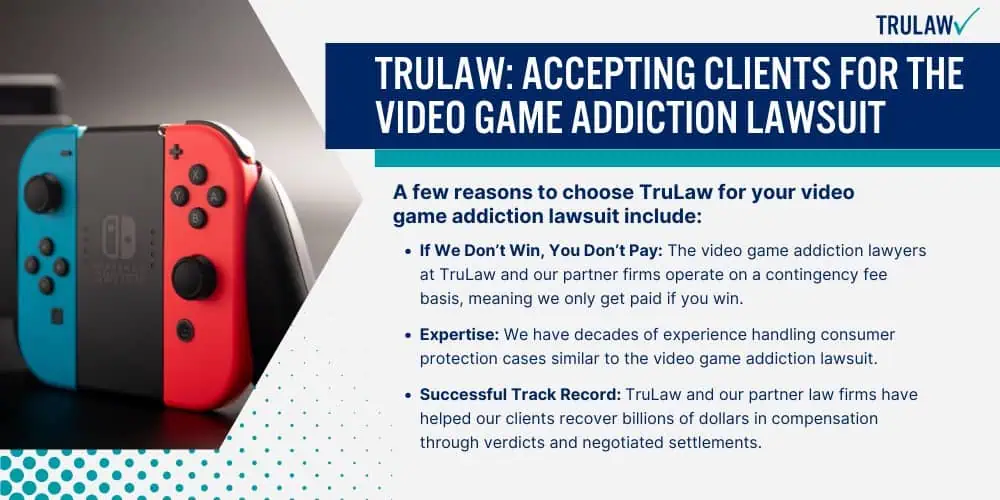The legal foundation for Nintendo Switch addiction claims rests on the World Health Organization’s recognition of gaming disorder in ICD-11 and growing scientific evidence of how game design exploits neurological reward systems.
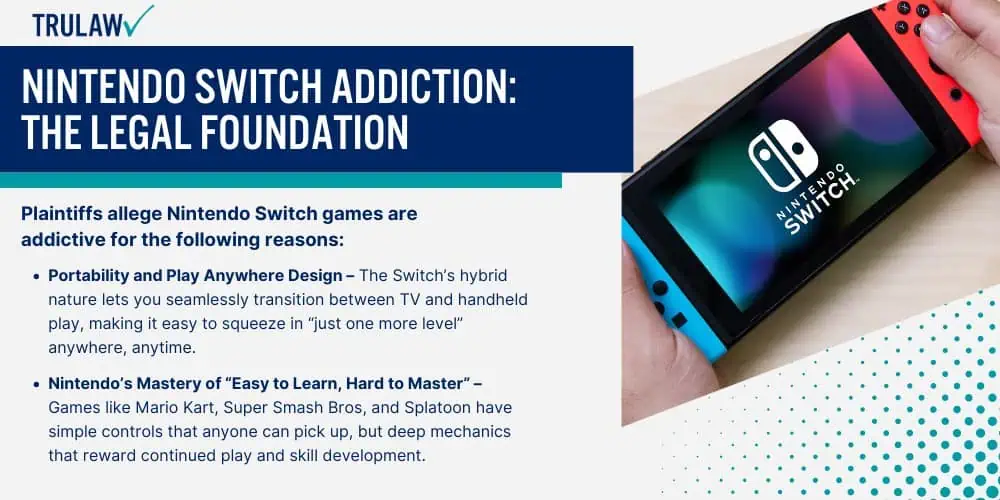
Nintendo Switch games allegedly employ sophisticated psychological manipulation techniques, including variable reward schedules, social pressure mechanics, and fear-of-missing-out (FOMO) strategies that create compulsive gaming behaviors.
These design elements, combined with the console’s portability and appeal to young users, form the basis for negligence and product liability claims against Nintendo in this video game lawsuit.
What Makes Nintendo Switch Games Addictive?
Nintendo Switch games incorporate multiple design elements that behavioral psychologists identify as addiction-forming mechanisms, including intermittent reinforcement schedules that trigger dopamine responses similar to those seen in gambling addiction.
The platform’s games feature progression systems, achievement unlocks, and time-limited events that create psychological pressure to continue playing, even when users want to stop playing video games.
Research indicates these mechanics are particularly effective on developing brains, making children and adolescents especially vulnerable to gaming addiction.
Plaintiffs allege Nintendo Switch games are addictive for the following reasons:
- Portability and Play Anywhere Design – The Switch’s hybrid nature lets you seamlessly transition between TV and handheld play, making it easy to squeeze in “just one more level” anywhere, anytime. This removes traditional barriers to gaming and creates more opportunities for habit formation.
- Nintendo’s Mastery of “Easy to Learn, Hard to Master” – Games like Mario Kart, Super Smash Bros, and Splatoon have simple controls that anyone can pick up, but deep mechanics that reward continued play and skill development, creating a satisfying progression loop.
- Achievement and Progression Systems – Whether it’s leveling up in Pokémon, improving your rank in Splatoon, or earning stars in Mario games, clear progression systems trigger dopamine responses and create compelling feedback loops.
- Regular Content Updates – Nintendo titles frequently receive seasonal events, new items, and fresh content that give players reasons to keep coming back months or years after purchase.
Expert testimony in ongoing video game addiction cases highlights how these features work synergistically to override natural stopping points and create compulsive engagement patterns.
The portable nature of the Nintendo Switch and other gaming consoles further exacerbates these issues by allowing constant access to potentially addictive content.
Psychological Design Elements That Target Young Players
Nintendo Switch games allegedly employ sophisticated psychological tactics specifically calibrated to exploit the developmental vulnerabilities of children and teenagers.
These design elements include bright colors, cute characters, and reward systems that trigger stronger responses in young brains that haven’t fully developed impulse control mechanisms.
Research presented in current litigation demonstrates how these games bypass rational decision-making processes and create neurological patterns that have linked video game addiction to substance abuse disorders.
Child development experts involved in these cases have identified specific ways Nintendo Switch games interfere with normal psychological development, including disruption of reward processing, attention regulation, and emotional control systems.
The combination of engaging content with psychologically manipulative mechanics creates what plaintiffs describe as a “perfect storm” for addiction in vulnerable young minds, similar to concerns raised about violent video games like Grand Theft Auto.
FOMO Tactics and Microtransaction Manipulation
Fear of Missing Out (FOMO) mechanics in Nintendo Switch games create artificial urgency that exploits users’ psychological need for completion and social inclusion.
Time-limited events, exclusive items, and seasonal content pressure players to maintain constant engagement or risk losing access to desired game elements forever.
These tactics are particularly effective on young users who haven’t developed the cognitive skills to recognize and resist such manipulation through excessive in game spending.
The microtransaction systems in many Nintendo Switch games allegedly prey on impulsive decision-making, offering instant gratification through in-game purchases.
Legal documents reveal how these systems are designed to create initial engagement through free or low-cost options before escalating monetary demands as users become more invested in the game, similar to practices seen in multiplayer online games.
Social Gaming Pressures and Community Addiction Cycles
Nintendo Switch’s emphasis on social gaming creates additional layers of psychological pressure that reinforce addictive behaviors through peer influence and community dynamics.
Multiplayer features, friend systems, and social comparison mechanics transform gaming from a solitary activity into a social obligation, making it harder for users to disengage from online games.
These social elements create what addiction experts describe as “network effects,” where each player’s participation increases the pressure on others to remain engaged.
The platform’s family-friendly image masks sophisticated retention mechanics that leverage social bonds to maintain user engagement.
Features like visiting friends’ game worlds, participating in group events, and maintaining social rankings create multiple touchpoints that pull users back into games even when they attempt to reduce usage.
